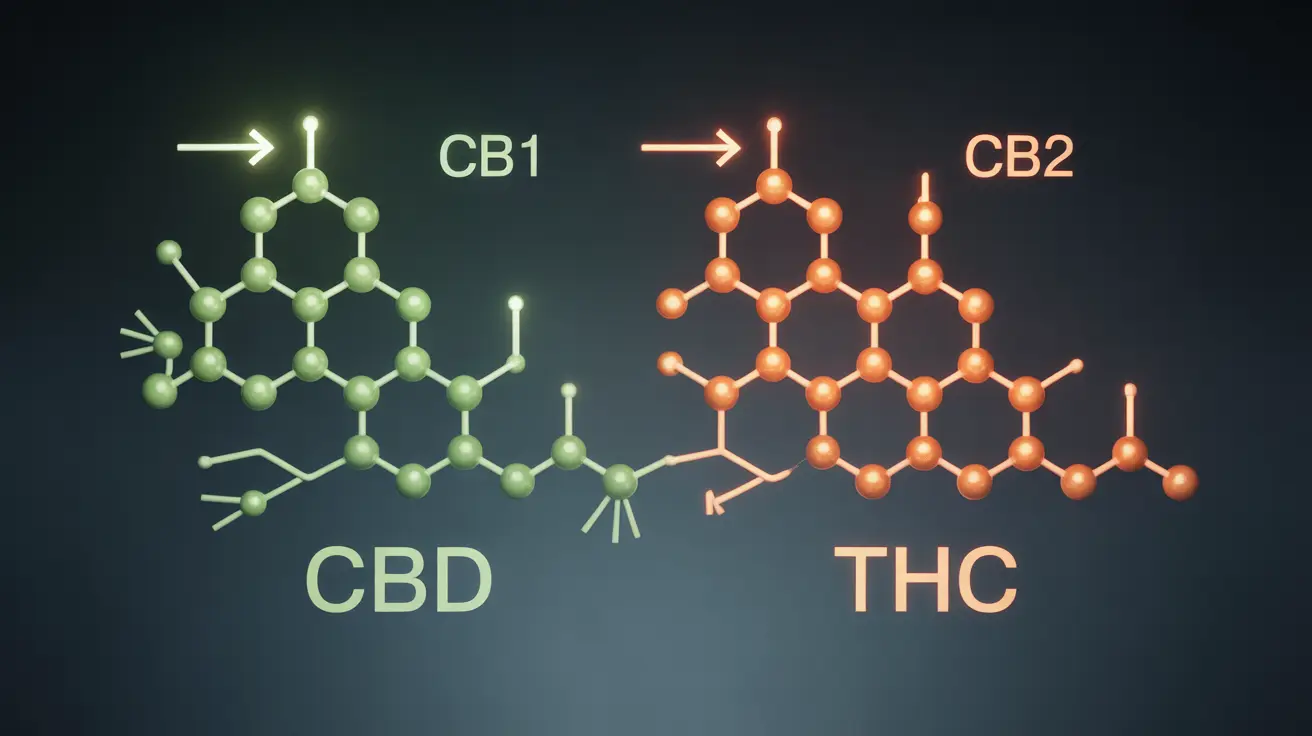Understanding the differences between CBD (cannabidiol) and THC (tetrahydrocannabinol) is crucial for anyone interested in cannabis-based products for health or medical purposes. While both compounds come from the cannabis plant, they have distinctly different effects on the body and mind, as well as varying legal statuses and medical applications.
This comprehensive guide explores the key distinctions between CBD and THC, helping you understand their unique properties, benefits, and potential risks. We'll examine how these compounds interact with your body, their therapeutic uses, and important legal considerations.
Chemical Structure and Effects on the Body
While CBD and THC share the same molecular formula, their atomic arrangements differ significantly, leading to vastly different effects on the human body. THC's structure allows it to bind directly with CB1 receptors in the brain, producing the characteristic "high" associated with cannabis use. In contrast, CBD doesn't bind directly with these receptors, instead modulating their activity and influencing other bodily systems.
Psychoactive Properties
The most notable difference between these compounds lies in their psychoactive effects. THC is primarily responsible for the euphoric sensations associated with marijuana use, while CBD doesn't produce intoxicating effects. This makes CBD an attractive option for those seeking potential therapeutic benefits without mental impairment.
Medical Applications and Benefits
Both CBD and THC offer distinct therapeutic potential for various medical conditions. CBD has shown promise in treating:
- Anxiety and depression
- Chronic pain
- Inflammation
- Seizure disorders
- Sleep problems
THC, meanwhile, has demonstrated effectiveness for:
- Chronic pain management
- Nausea and vomiting (particularly in cancer patients)
- Muscle spasticity
- Glaucoma
- Poor appetite
Safety and Side Effects
CBD generally has a more favorable safety profile compared to THC. Common CBD side effects are typically mild and may include:
- Fatigue
- Changes in appetite
- Diarrhea
- Interactions with certain medications
THC's side effects can be more pronounced, potentially including:
- Short-term memory issues
- Anxiety or paranoia
- Increased heart rate
- Coordination problems
- Red eyes
Legal Status and Accessibility
The legal landscape for CBD and THC varies significantly across the United States. CBD derived from hemp (containing less than 0.3% THC) was federally legalized under the 2018 Farm Bill. THC, however, remains federally illegal, though many states have legalized it for medical and/or recreational use. Always check local laws before purchasing or using either compound.
Frequently Asked Questions
What are the main differences between CBD and THC in terms of effects and safety?
CBD and THC differ primarily in their psychoactive effects. THC produces a euphoric "high" and can impair cognitive function, while CBD doesn't cause intoxication. CBD generally has fewer side effects and is considered safer for daily use, though both compounds should be used under medical supervision when treating specific conditions.
Can CBD cause a high or addictive behavior like THC does?
No, CBD does not cause a high or lead to addictive behavior. Unlike THC, CBD doesn't bind directly to CB1 receptors in the brain responsible for psychoactive effects. Research suggests CBD may actually help counter some of THC's intoxicating effects and has shown potential in treating substance use disorders.
How do CBD and THC work differently in the body's endocannabinoid system?
THC directly binds to CB1 receptors in the brain and CB2 receptors throughout the body, producing strong effects on mood, perception, and physical sensation. CBD works more indirectly, modulating receptor activity and influencing various other biological systems, including serotonin receptors, which explains its potential anti-anxiety and anti-inflammatory properties.
What medical conditions can be treated with CBD versus THC?
CBD shows promise in treating anxiety, depression, inflammation, seizures, and chronic pain without psychoactive effects. THC is often used for chronic pain, nausea, appetite stimulation, and muscle spasticity. Some conditions may benefit from combining both compounds, known as the "entourage effect."
What is the legal status of CBD compared to THC in the United States?
Hemp-derived CBD containing less than 0.3% THC is federally legal, though state regulations may vary. THC remains federally illegal but is legal for medical use in 37 states and recreational use in 21 states (as of 2023). Always verify local laws and regulations before purchasing or using either compound.




